Folksonomies and tagging is a relatively new occurrence in library catalogs. Although the integration of tagging features seems to have caught on quite well within public and community libraries, the implementation of tagging software in academic and special library collections seems to be moving at a bit of a slower rate.
At any rate, let’s take a look at some library catalogs that are implementing folksonomies. I’ll be comparing a university/college union catalog, a city public library catalog, both of which are using tags from LibraryThing, and a law school library catalog that is implementing the rather popular Encore library search tool.
TOPCAT is a union catalog of the SWITCH Library Consortium of universities and colleges in Wisconsin. According to TOPCAT Features, the “tags are from LibraryThing, a book cataloging site that features a database of over 22 million titles. Public members of LibraryThing contribute tags describing the contents of each item. Tags are viewable within the full record of many TOPCAT titles although they are not in all records.” Additionally, according to the What are Tags? page the university library users cannot add their own tags, and tags may be “irrelevant or not quite ‘right’.” Once a user clicks on a tag to look for related resources, a Tag Browser appears.
Here is an example of a library catalog description with “Tags” and LibraryThing’s “Similar Titles” feature:
Having read Daly’s work, and having completed a minor in Gender and Women’s Studies, I find several things to be interesting about the tags for this catalog entry. One is the absence of the term “radical feminism” which we can see referenced in the title of one of her other works. The other is that once I start to explore the Tag Browser, I find only related works on “feminist theology” or “feminist theory” that take me to other related authors, but that do not privilege Mary Daly’s other works as relevant. The relationships between terms are associative rather leading me to greater degrees of specificity.
Of course, there isn’t anything necessarily wrong or bad about this, but if I wanted to be able to browse from the broader term of “feminist theory” or “feminism” to a specific kind of theory, such as “radical feminism,” these tag features do not allow me to do so. All that being said, as an exploration and discovery tool that brings together variously associative works, the tag feature works quite well.
The Danbury Public Library, is the city library of Danbury, Connecticut. The Danbury Public Library Catalog also integrates some LibraryThing’s features, mainly tags and a list of similar books without thumbnail icons. Here is another example of a catalog entry and tags:
The catalog description also features an excerpt of the works provided by Syndetic Solutions. In this case, it’s interesting to note that one of the tags includes the name of the author, and (possibly) where the work is published (i.e., USA). Also, we have terms with a much greater degree of specificity that are unique to Le Guin’s world building, namely “Ekumen” and “hainish.” As expected, broader terms like “speculative fiction” and “feminism” yield a larger variety of associative works.
The Mendik Library, the New York Law School’s library switched to Encore library discovery search a couple years ago, according to product website. Additionally, according to the product website, both library staff and users can add tags and includes specialized terms. One noticeable difference between the tag feature in Encore, as opposed to LibraryThing, is the presence of a Refine Searches tag cloud at the bottom of a retrieved search list and a Refine by Tag cloud to the immediate right of a retrieved search list. Here are examples with a search on “anarchism”:
The “Established Terms” to the left of the related searches tag cloud are terms “chosen by librarians to ensure consistency in organizing library materials.” In addition to librarian-recommended search terms, the associated “anarchism” tags offer a very rich variety of associated topics, people, events, times, historical movements, and places, offering greater degrees of specificity or generality of related terms. Looking at a specific catalog entry may reveal an absence of “Community Tags,” however, the option to Add a Tag is clearly available to patrons:
What’s particularly interesting about the use of tags in a special library like the Mendik Library, is that its overall usefulness seems unclear. Tag searches work quite well as a general discovery tool for those who are just beginning to familiarize themselves with the topic; however, the use of tags for highly specific and specialized research would also be useful. Additionally, the inability to add or modify tags within the systems that utilize LibraryThing, seems like a bit of a moot point.
As a public library patron, I would be much more inclined to use Encore’s tagging system for discovery, as well as utilize the option of being able to contribute my own personal tags to a work. From the perspective of an academic library patron, I would most likely view the integrated LibraryThing tags as a limited discovery tool that may become less useful once a greater familiarity with the subject and research topic is acquired. Additionally, I would view inability to add or modify links as pretty significant limitation to being able to leverage the power of tagging within a participatory academic and scholarly community. Overall, I would suggest that other libraries consider the usefulness of having tags as a discovery tool and a means of refining one’s search, and I would also suggest that other libraries do not integrate tags without the option of user participation. As others have explained, the greatest appeal of tagging, folksonomies, and social bookmarking is the ability leverage user participation and community knowledge.
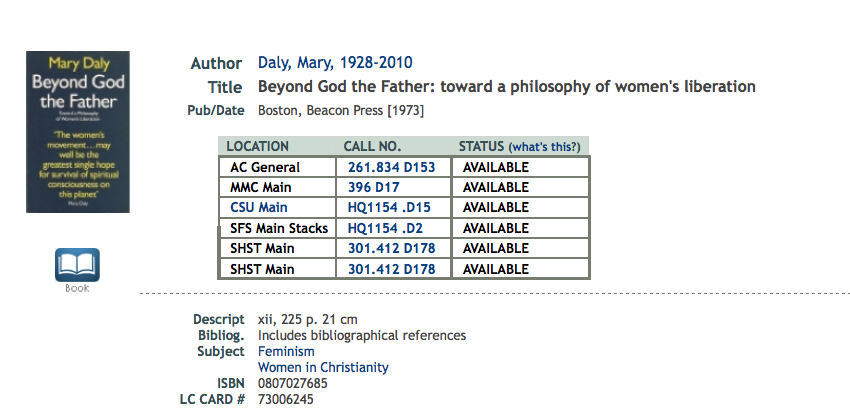
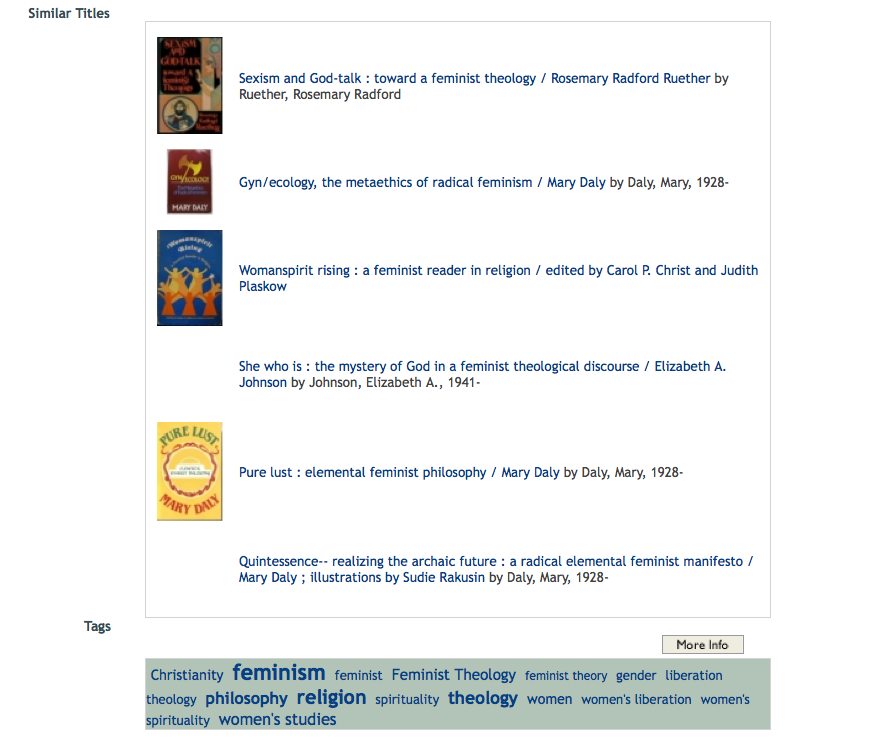
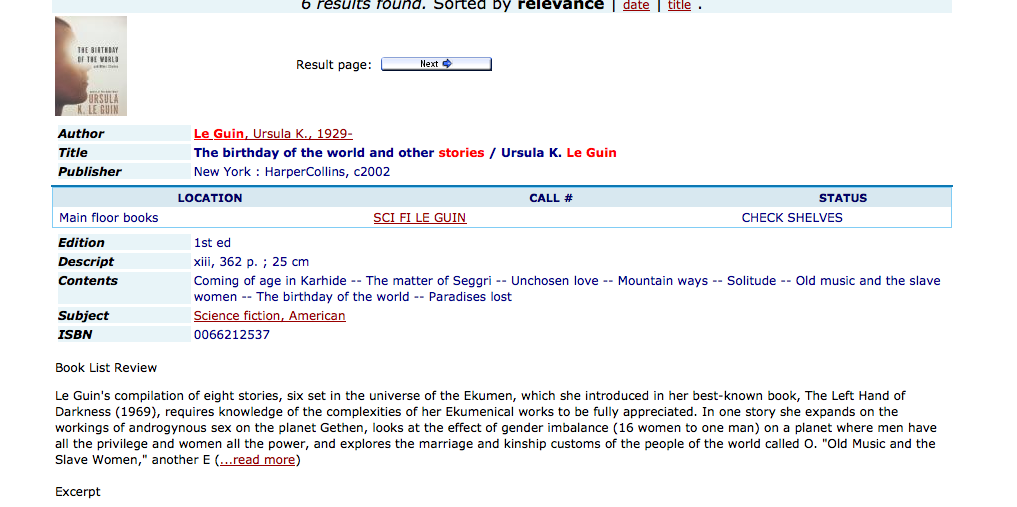

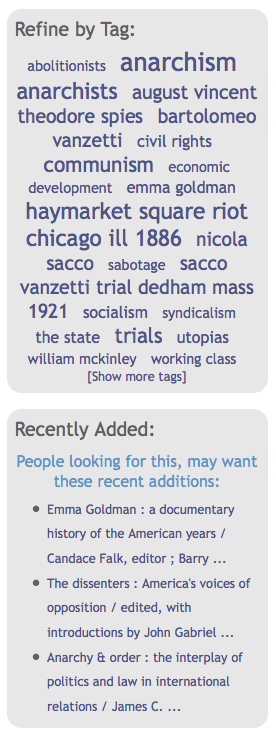
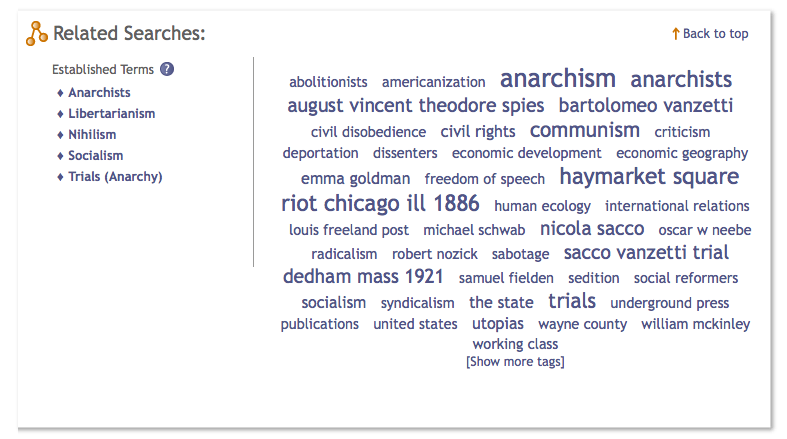
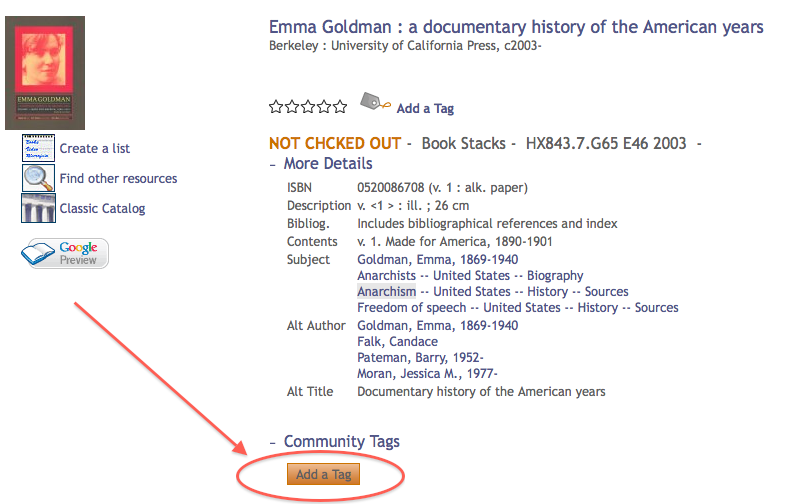
Trackbacks